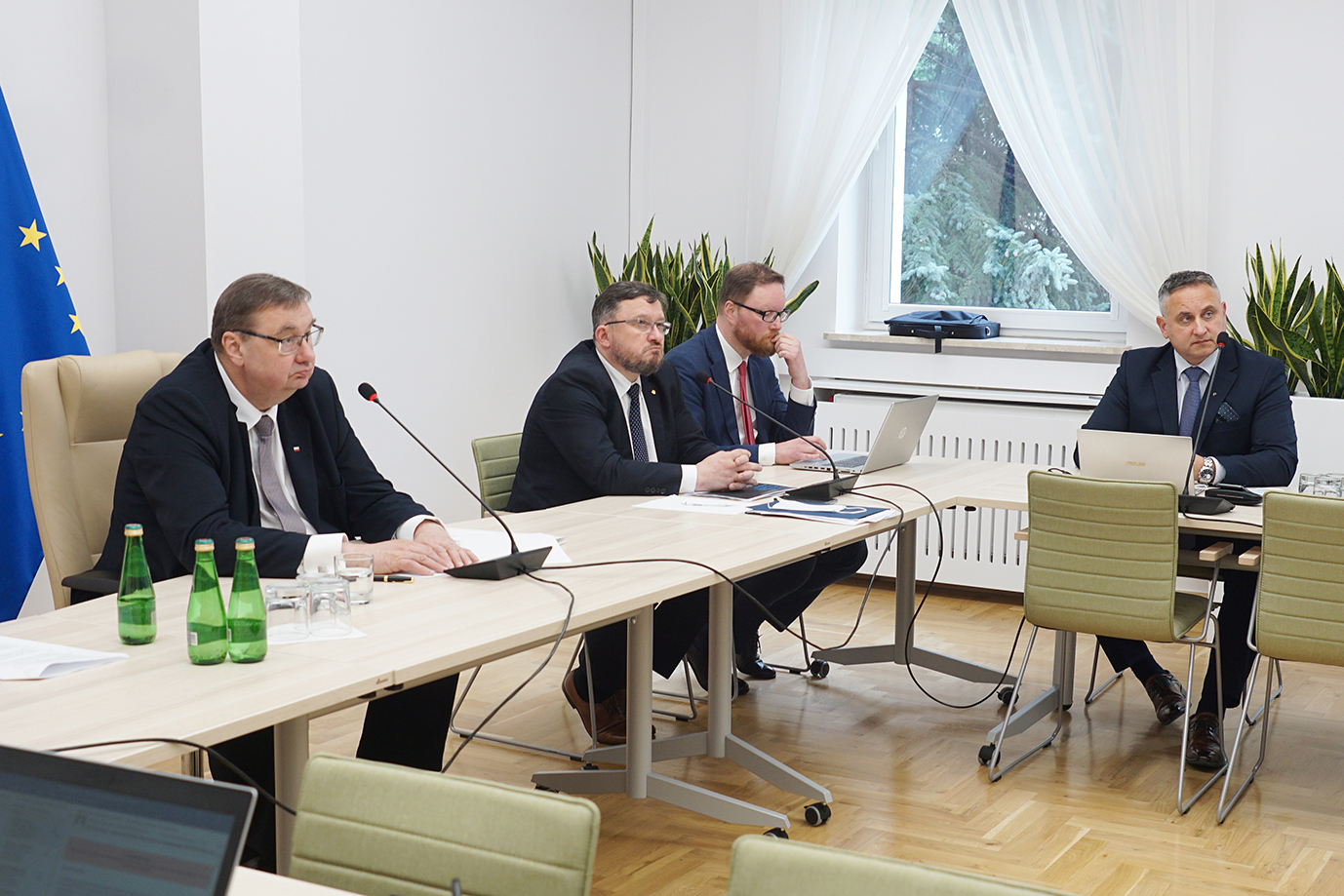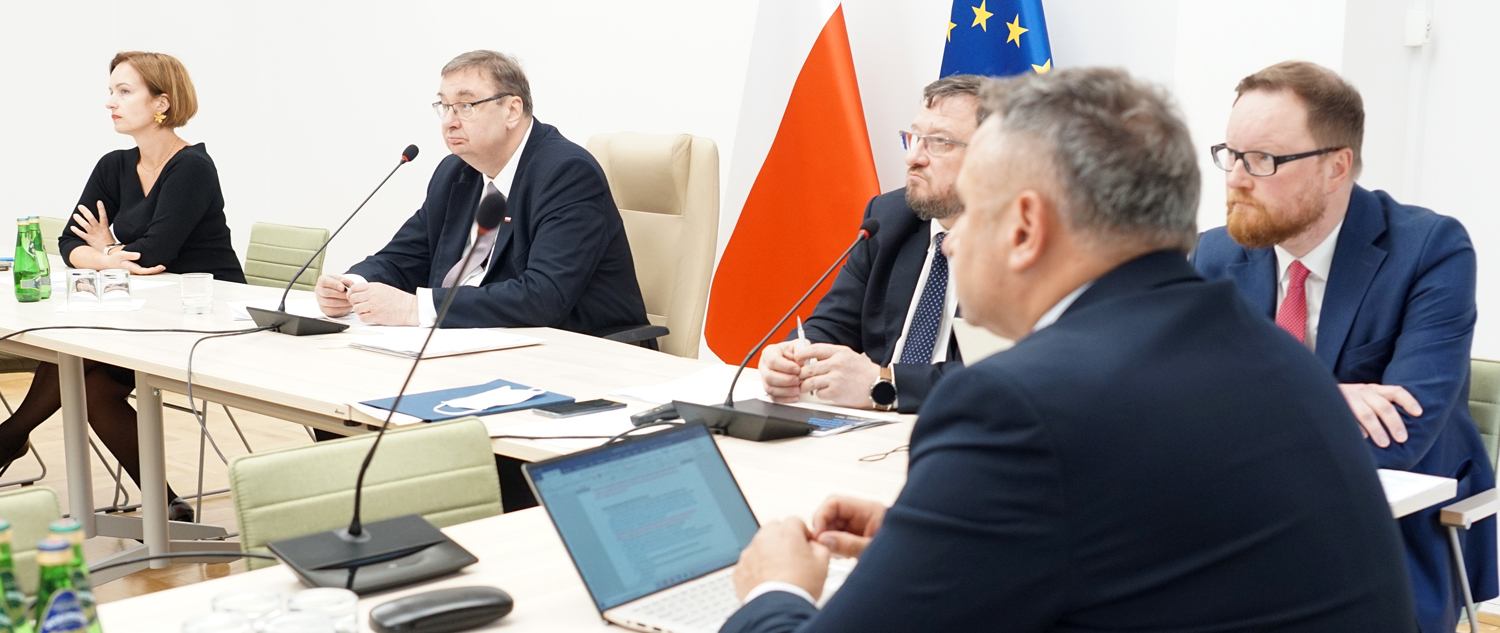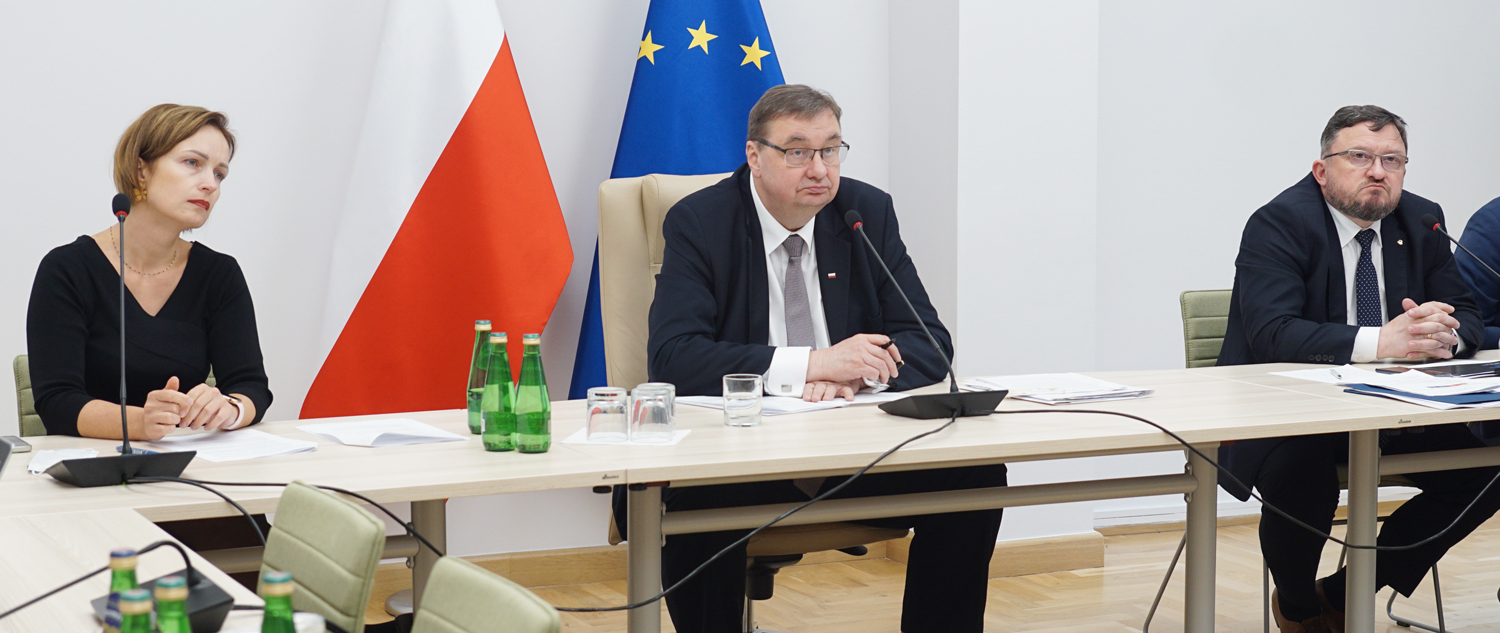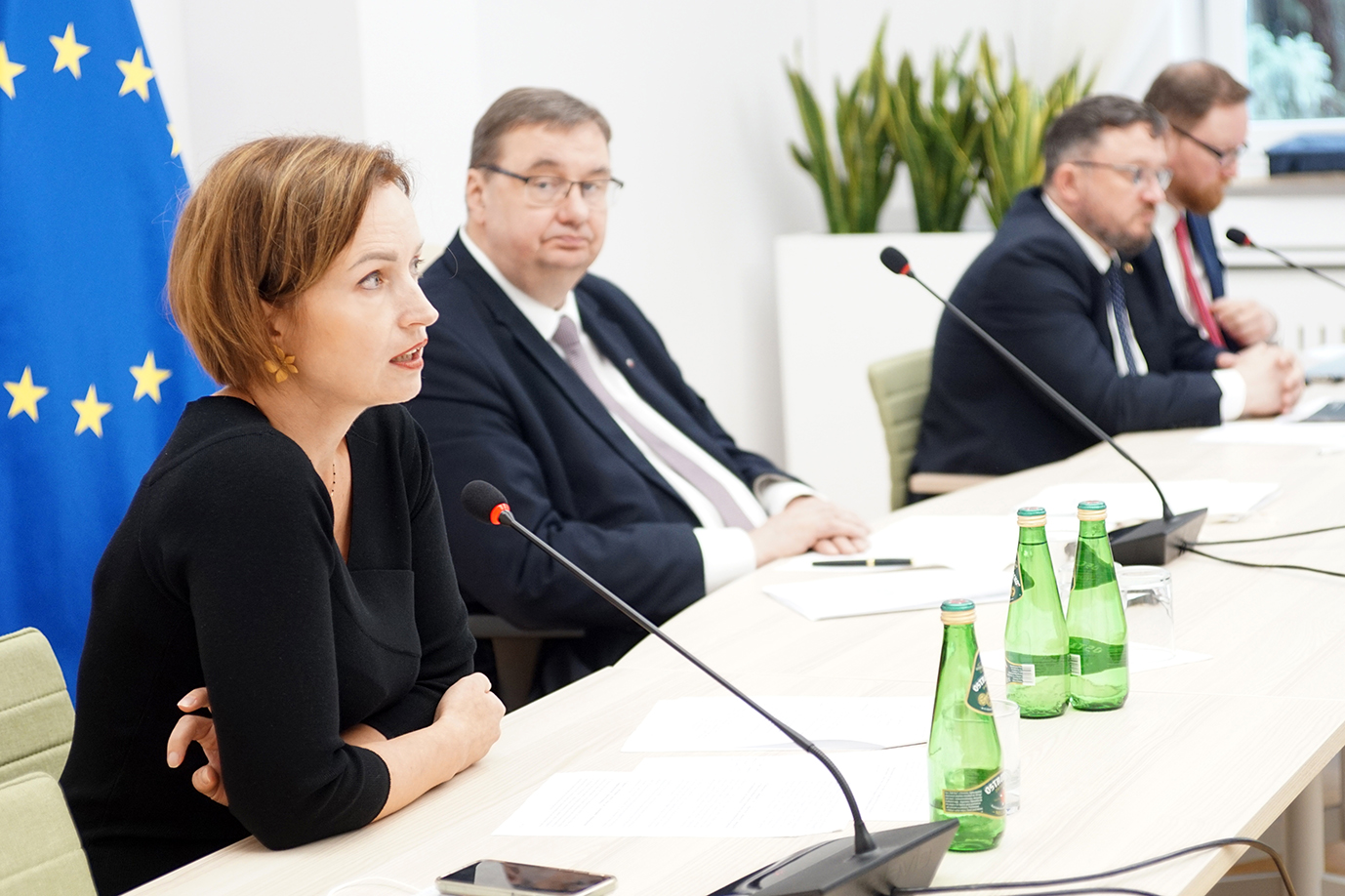High-level quadrilateral meeting on ASF
24.09.2021
State Secretary Szymon Giżyński took part in a quadrilateral high-level meeting on ASF. The meeting, which took place online this week, was organised by the European Commission's Directorate-General for Health and Food Safety (DG SANTE), represented by Deputy Director-General for Health and Food Safety Claire Bury, with the participation of: the State Secretary at the Czech Ministry of Agriculture Jiří Šíra, the State Secretary at the German Ministry of Agriculture Beate Kasch and the State Secretary at the Polish Ministry of Agriculture Szymon Giżyński. The meeting focused on coordination and cooperation in the field of ASF in the border regions of the invited EU Member States.

Action by the Czech Republic, Germany and Poland
During the meeting, the Czech, German and Polish delegations presented information on their national measures to deal with ASF, especially those applied in regions close to their common borders. The delegations also discussed the possibilities of cooperation in the area of joint actions to stop the westward spread of ASF.
The Chief Veterinary Officer Mirosław Welz presented the Polish strategy for combating and containing the spread of ASF in border areas, which involves reducing the wild boar population, removing dead animals from the environment and fencing selected areas where ASF is found in wild boars. He pointed out that the number of ASF outbreaks in wild boars in Polish border areas was significantly down on last year.
Barriers to slow down the movement of wild boars
During the meeting, the German representatives raised the issue of making a permanent fence on the Polish side to prevent the movement of wild boars along the border with Germany. Poland is not in favour of such a solution, as State Secretary Szymon Giżyński has made clear. The construction of such a barrier of considerable length is not, in Poland's view, an appropriate measure to combat ASF. Such a barrier would have limited effectiveness in relation to the potential expenditure to build it. Due to the impossibility of ensuring its complete tightness, as well as the ease with which it can be forced through by wild boars, its effectiveness is justifiably questioned, in line with the already existing unfavourable German experience. In addition, doubts remain about the impact of such a barrier on the threat to ecosystem integrity and biodiversity in the area. Construction of local fences and barriers, as it is practised in Poland – local restriction of wild boar migration in a specific area is a more precise and effective measure than large-scale investments. The Czech representative stressed in the discussion that barriers slowing down the movement of wild boars were only one, and not the only, element in the difficult fight against ASF, the key issue being biosecurity.
European Commission support to Member States
Concluding the meeting, the European Commission assured its continued support and suggested the development of a joint cross-border ASF action plan by the participating countries: Czech Republic, Germany and Poland. Further work in this area will be carried out at expert level. According to the Polish representatives, it is crucial that such a plan takes into account the national specificities of each country and draws on the best and most effective solutions.
In the course of the discussion, EC Deputy Director-General for Health and Food Safety Claire Bury announced an on-site visit of the Polish solutions, including systemic fencing, by the European Commission.
Deputy Minister Szymon Giżyński expressed his gratitude to Director Claire Bury for this initiative, expressing hope and conviction that the Commission experts will come to Poland "not as emissaries of fence building", but will leave our country convinced of the effectiveness of the Polish solutions – including fencing systems – effectively limiting and blocking the migration of wild boars, and thus worth recommending to other EU Member States.
During the meeting, the European Commission recalled the possibilities to provide support, including financial support, to Member States affected by ASF, both under intervention measures and the CAP. Poland significantly participates in the funds coming from such support and takes into account the continuation of solutions supporting the fight against ASF in the proposal of the CAP Strategic Plan 2023-2027.
During the meeting, Director Bernard van Goethem concluded that the European Commission will not reimburse expenditure on barriers that are not effective or scientifically proven.




